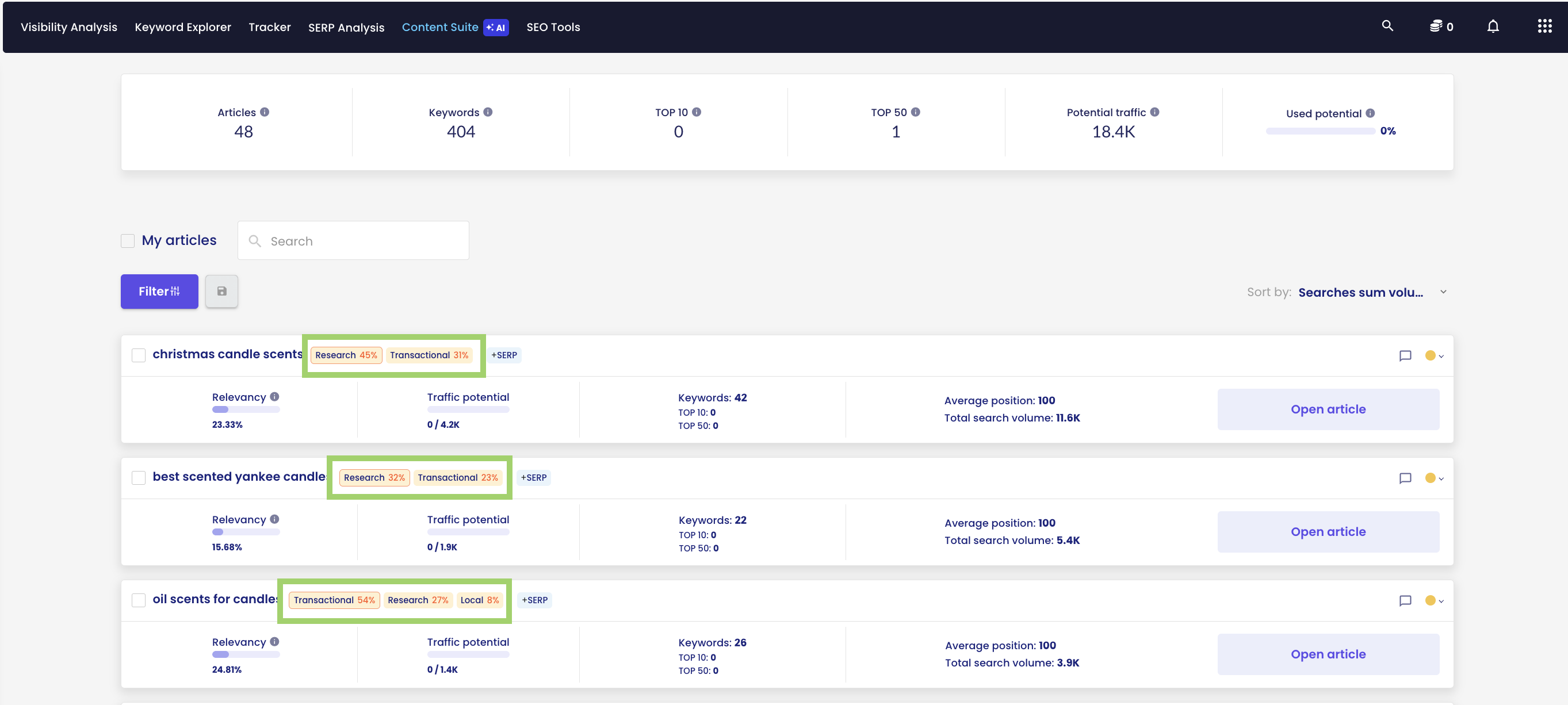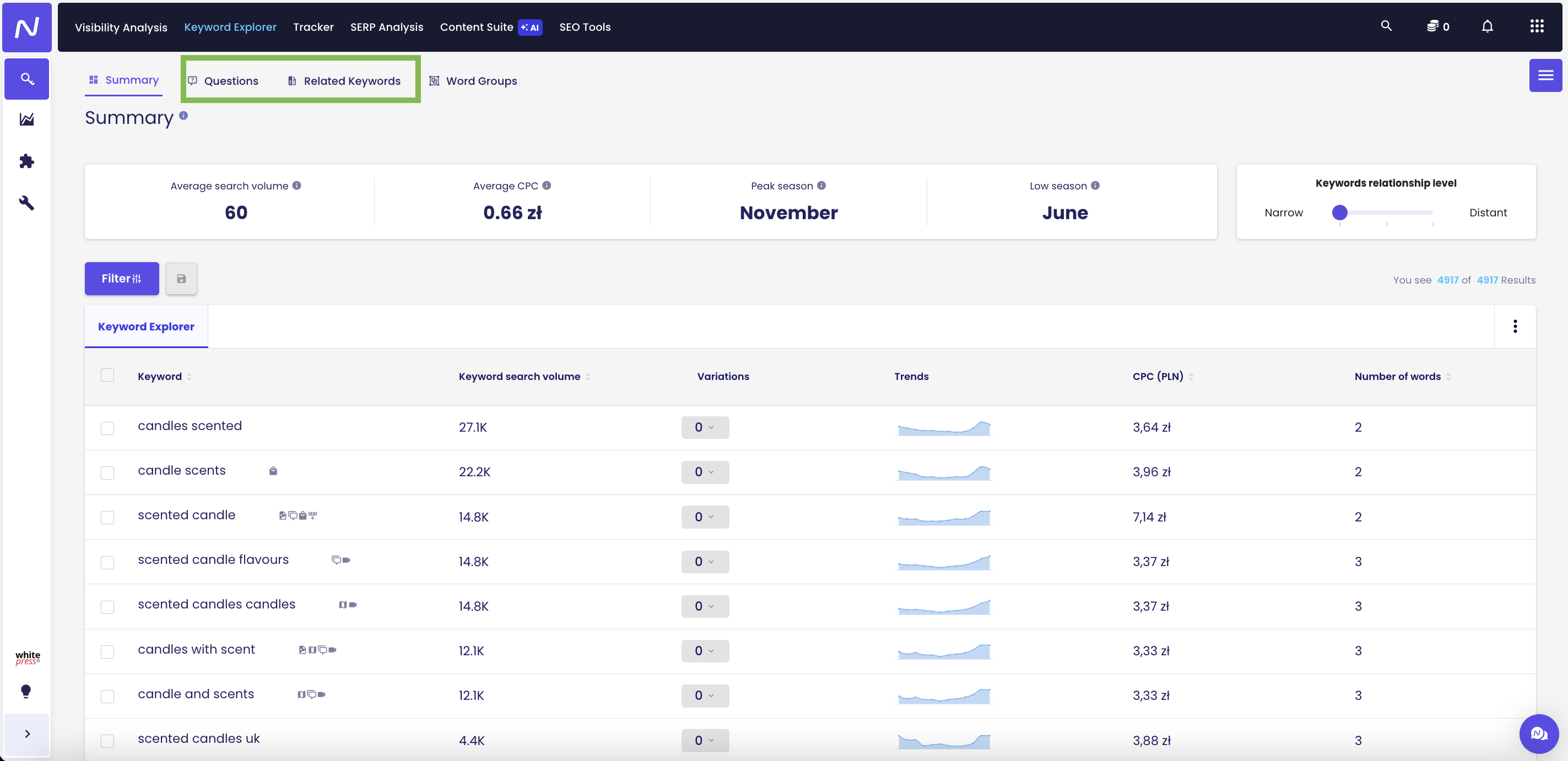When it comes to ecommerce success, one of the most crucial factors is the use of high conversion keywords for ecommerce. These keywords have the power to drive targeted traffic to your online store, leading to increased sales and revenue. In this guide, we will explore the importance of high conversion keywords for ecommerce and provide actionable tips on how to leverage them effectively.
Key Takeaways
- High conversion keywords are crucial for attracting potential customers with a higher likelihood of making a purchase, thereby increasing sales and revenue for ecommerce stores.
- Incorporating high conversion keywords into your ecommerce SEO strategy can significantly boost your store’s visibility in search engine results.
- Targeting long-tail and commercial intent keywords can optimize your ecommerce conversion rate by attracting ready-to-buy customers.
- Performing a thorough ecommerce keyword analysis is essential for identifying commercial intent keywords that drive high conversion rates.
- Creating compelling content and optimizing product descriptions and landing pages around high conversion keywords can enhance your ecommerce site’s organic traffic and conversion rates.
Understanding the power of high conversion keywords for ecommerce
Ever heard of high conversion keywords? No? Well, sit tight, because they’re about to become your new best friend. Think of them as the magic words that make people open their wallets. These gems are the search terms most likely to turn browsers into buyers. Why? Because they’re specific, targeted, and laser-focused on what people are actually looking for.
Picture this: someone is searching online for “eco-friendly yoga mats.” If you sell those, using this keyword is like rolling out the red carpet for them straight into your store. They’re not just window shopping; they’re practically waving their credit card at you.
If you use top converting keywords, you’re not just throwing spaghetti at the wall to see what sticks. You’re strategically boosting your store’s visibility on search engines. More visibility means more clicks, and more clicks mean more sales. Simple, right?
So, don’t just settle for any old keywords. Go for the high conversion ones. They’re your ticket to attracting customers who are ready to buy what you’re selling. Ready to see your sales soar? Start speaking their language.
This is simply acting in accordance with funnel keyword strategy. Top converting keywords are usually at the bottom of funnel.
How high conversion keywords impact ecommerce sales
Keywords for conversions play a significant role in driving ecommerce sales by attracting potential customers who are more likely to make a purchase. When users search for these specific keywords, they are often further along in the buying process and have a clear intent to buy. By optimizing your ecommerce store for high conversion keywords, you can increase the chances of capturing these ready-to-buy customers and converting them into sales.
For example, an online store selling running shoes might target high conversion keywords such as “best running shoes for flat feet” or “women’s trail running shoes sale.” These search terms indicate that the user is actively looking for a specific product, increasing the likelihood of a sale.
There is a strong correlation between high conversion rates and effective keyword usage. By focusing on high-converting keywords, ecommerce businesses can improve their search engine rankings, attract more targeted traffic, and ultimately increase their conversion rates. This, in turn, leads to higher ecommerce sales and revenue.
Key takeaway: High conversion keywords are essential for driving targeted traffic to your ecommerce store, resulting in increased sales and revenue. By optimizing your store for top converting keywords, you can improve your search engine rankings and boost your conversion rates.
Ecommerce SEO strategy: leveraging high conversion keywords
An effective ecommerce SEO strategy is crucial for driving targeted traffic to your online store and increasing sales. By incorporating high conversion keywords into your SEO strategy, you can improve your store’s visibility in search engine results and attract potential customers who are more likely to make a purchase.
Incorporating high conversion keywords into your ecommerce SEO strategy
To boost ecommerce conversion using SEO practices, follow these steps:
- Conduct keyword research to identify high conversion keywords relevant to your products or services.
- Analyze your competitors’ SEO strategies to discover gaps and opportunities for your ecommerce store.
- Optimize your website’s on-page elements, such as title tags, meta descriptions, and header tags, with high conversion keywords.
- Create high-quality, engaging content that incorporates your target keywords naturally and provides value to your audience.
- Build a strong backlink profile by acquiring links from authoritative websites in your niche.
- Monitor your SEO performance and adjust your strategy as needed to maintain and improve your search engine rankings.
By implementing these SEO practices, you can improve your ecommerce SEO and increase the chances of capturing ready-to-buy customers.
How to boost ecommerce conversion with the right keywords
To increase conversion rates and improve your ecommerce conversion, focus on the following strategies:
- Target long-tail keywords: These are longer, more specific search terms that have lower search volume but higher conversion rates. Long-tail keywords are less competitive, making it easier for your ecommerce store to rank higher in search engine results.
- Optimize product pages: Ensure that your product pages are optimized with high conversion keywords in the title, description, and image alt tags. This will help search engines understand the content of your pages and improve your chances of ranking higher for relevant search terms.
- Use commercial intent keywords: These are search terms that indicate a user’s intent to make a purchase, such as “buy,” “discount,” or “sale.” Incorporating commercial intent keywords into your SEO strategy can help attract potential customers who are ready to buy.
- Monitor and analyze keyword performance: Regularly track your keyword rankings and analyze the performance of your target keywords. This will help you identify opportunities for improvement and adjust your SEO strategy accordingly.
By focusing on these strategies, you can optimize your ecommerce conversion rate and drive more sales through effective keyword usage.
Key takeaway: Incorporating high conversion keywords into your ecommerce SEO strategy can significantly boost your conversion rates and increase sales. Focus on targeting long-tail, commercial intent keywords and optimizing your product pages to attract potential customers who are more likely to make a purchase.
Ecommerce conversion rate optimization: the role of keywords
Conversion rate optimization (CRO) is a crucial aspect of ecommerce success, and the strategic use of keywords plays a significant role in this process. By understanding the importance of keywords in ecommerce conversion rate optimization and implementing effective keyword usage, you can significantly improve your store’s conversion rates.
Increasing conversion rates through effective keyword usage
Want to give your store’s conversion rates a serious boost? Here’s a trick: focus on long-tail keyword performance. They might not get as high search volume, but they pack a punch when it comes to conversion rates. By targeting these long-tail keyword opportunities, you can attract potential customers who are more likely to make a purchase.
Think about it. Someone searching for “reusable silicone food storage bags” is way more likely to buy than someone just typing “food storage bags.” They know exactly what they want, and if you’ve got it, they’re ready to buy.
So, if you sell eco-friendly products, don’t just go for the generic terms. Zero in on those long-tail keywords. They’ll help you attract customers who are ready to click “buy now.” More specific searches mean more sales. It’s that simple.
Commercial intent keywords: the secret of high conversion
Understanding commercial intent keywords and their role in conversions
Commercial keywords are search terms that indicate a user’s intent to make a purchase or engage in a transaction. These keywords often include terms like “buy,” “discount,” “sale,” or “coupon.” A well-planned SEO keyword strategy that focuses on commercial intent keywords can significantly influence conversions and boost your ecommerce store’s revenue.
For example, a user searching for “best running shoes” may be in the research phase, while a user searching for “buy running shoes online” demonstrates a higher likelihood of making a purchase. By targeting commercial intent keywords, you can attract potential customers who are closer to the point of conversion, increasing your chances of making a sale.
How to identify commercial keywords for your ecommerce store
Performing an ecommerce keyword analysis is essential for identifying commercial intent keywords that can drive high conversion rates. Follow these steps to conduct a thorough analysis and choose the right keywords for your ecommerce store:
- Use keyword research tools like Senuto to generate a list of potential target keywords related to your products or services.
- Analyze the search volume, competition, and cost-per-click (CPC) of each keyword to determine its potential for driving conversions.
- Identify keywords with high commercial intent by looking for terms that include transactional phrases like “buy,” “order,” “discount,” or “free shipping.”
- Consider long-tail keywords with lower search volume but higher conversion potential, as they often indicate a more specific user intent.

In Senuto, we mark the intention of a particular keyword, e.g. in the Content Planner. All you have to do is select the topics you are interested in and the intent for the suggested phrases will already be identified. With Content Planner you can also increase website traffic.
By using ecommerce keyword analytics to identify and target commercial intent keywords, you can optimize your store’s SEO strategy and increase the likelihood of attracting potential customers who are ready to make a purchase.
Key takeaway: Commercial intent keywords play a significant role in driving high conversion rates for ecommerce stores. By understanding their importance and conducting a thorough ecommerce keyword analysis, you can identify target keywords that will attract potential customers with a higher likelihood of making a purchase.
Keyword analysis and planning for ecommerce
Developing a comprehensive keyword plan is essential for optimizing your ecommerce site and driving high conversion rates. In this section, we will introduce keyword ideas and planning, explain how to use Google Keyword Planner, and provide tips on creating a comprehensive keyword plan for your ecommerce store.
How to create a comprehensive keyword list for your ecommerce site
Performing keyword research is a crucial step in creating a keyword list that will help optimize your ecommerce site. Follow this step-by-step guide to conduct thorough keyword research and create a comprehensive keyword list for your ecommerce store:
- Start by brainstorming a list of potential keywords related to your products or services. Think about the terms your target audience might use when searching for your products.
- Use keyword research tools like Senuto to generate additional keyword ideas and analyze their search volume, competition, and cost-per-click (CPC).
- Identify high-conversion keywords by looking for terms with high search volume, low competition, and high commercial intent. These keywords are more likely to attract potential customers who are ready to make a purchase.
- Expand your keyword list by including long-tail keywords, which are longer and more specific search terms with lower search volume but higher conversion potential.
- Organize your keywords into categories based on their relevance to your products or services, and prioritize them based on their potential to drive conversions.
Once you have created a comprehensive keyword list, you can use it to optimize your ecommerce site by incorporating these keywords into your site’s content, meta tags, and URLs. This will help improve your site’s visibility in search engine results and attract more potential customers who are interested in your products or services.
Key takeaway: Creating a comprehensive keyword list is essential for optimizing your ecommerce site and driving high conversion rates. Conduct thorough keyword research using tools like Google Keyword Planner, and prioritize high-conversion keywords to attract potential customers who are ready to make a purchase.
How to find high converting keyword for ecommerce with Senuto?
It’s super simple! Just use the Senuto Keyword Explorer. Type in the phrase you’re interested in, and let the tool do the magic.

You’ll get insights like:
- average monthly search volume
- variations of the primary keyword
- average CPC
- keyword difficulty
Don’t just focus on the basic keyword versions. Variations or even related questions can often be more beneficial for your ecommerce.
The Role of Content in Ecommerce Keyword Strategy
Creating top-notch ecommerce content is a game-changer for driving organic traffic and boosting your site’s visibility on search engines. Let’s dive into why content matters in ecommerce, how to craft content that captivates, and how it can supercharge your keyword strategy by providing insight.
Creating compelling content around high conversion keywords
To create content that resonates with your target audience and drives conversions, focus on incorporating top keywords into your content. Here are some tips on how to create content around high conversion keywords:
- Identify the main keyword for each piece of content and ensure it is included in the title, headings, and throughout the body of the text.
- Use related keywords and phrases to provide context and improve your keyword rankings.
- Write informative and engaging content that addresses the needs and interests of your target audience.
- Include clear calls-to-action (CTAs) to guide users towards making a purchase or taking another desired action.
The role of product descriptions in keyword strategy
Product descriptions play a crucial role in supporting your keyword strategy and driving conversions. Here’s how to write product descriptions for specific products that can boost your ecommerce business:
- Include the main keyword and related keywords in the product title and description.
- Highlight the unique features and benefits of the product, using persuasive language to encourage users to make a purchase.
- Use bullet points or short paragraphs to make the description easy to read and understand.
- Include high-quality images and videos to showcase the product and provide additional context.
How landing pages can boost your keyword performance
Optimizing your landing pages for high-conversion keywords can skyrocket your site’s visibility on search engines and bring in more organic traffic. Here are some tips on how to optimize landing pages for high search volume keywords:
- Keyword Placement: Make sure to include your main keyword in the title, headings, and meta tags of your landing page.
- Engaging Content: Write content that’s both engaging and informative, addressing your target audience’s needs and incorporating related keywords.
- Clear CTAs: Use clear calls-to-action to guide visitors towards making a purchase or taking another desired action.
- Performance Optimization: Improve your page’s loading speed, mobile-friendliness, and overall user experience to enhance its search engine performance.
Follow these tips, and you’ll create compelling ecommerce content that not only supports your keyword strategy but also drives organic traffic and boosts your conversion rates.
Summary
In this comprehensive guide, we’ve dug into why high conversion keywords are the secret sauce for ecommerce success. We’ve chatted about how to weave these keywords into your SEO strategy and why they’re a game-changer for boosting sales. Plus, we’ve looked at commercial intent keywords and how to spot them for your online store.
We didn’t stop there. We also broke down the steps for keyword analysis and planning, stressing the importance of having a solid keyword list. We shared tips on crafting killer content, jazzing up product descriptions, and fine-tuning your landing pages for peak performance.
Follow the tips and tricks from this guide, and you’ll be well on your way to mastering high conversion keywords. You’ll drive more organic traffic, see your sales soar, and watch your conversion rates climb. Ready to take your ecommerce game to the next level? Let’s do this!
 Iza Sykut
Iza Sykut